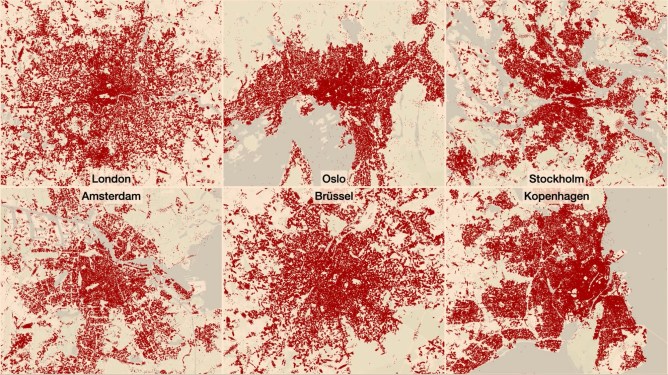Image Credits: Michael Kreil, Flüpke / Chaos Computer Club (opens in a new window)
Zack Whittaker
Volkswagen Group’s troubled automotive software unit Cariad left terabytes of customer data on around 800,000 electric Audi, Seat, Skoda, and Volkswagen vehicles exposed to the internet for months, reports Der Spiegel (in German), citing security researchers who learned about the data spill from an unnamed whistleblower.
The Exposed Data
The researchers, who gave their talk at the Chaos Computer Club in Hamburg, Germany, this week, said the exposed data also contained the precise location coordinates on more than half of the listed vehicles, around 460,000 cars. Some of the location data was accurate to a few centimeters, they said, with the data showing most of the vehicles found across Germany, Norway, Sweden, the United Kingdom (in descending order), among others.
The Bug and Its Fix
Cariad fixed the bug that led to the exposure and said that it has no evidence to suggest anyone other than the security researchers had access to the exposed data. However, the incident highlights the company’s struggles in recent years, plagued by delays to major software launches and a restructuring that has eliminated hundreds of jobs.
The Impact
The data leak raises serious concerns about the security and privacy of customers’ personal information. With precise location data available, hackers could potentially track the movements of vehicle owners, compromising their safety and security. Furthermore, the incident underscores the need for robust cybersecurity measures in the automotive industry, where sensitive customer data is constantly being transmitted.
Cariad’s Struggles
Cariad has faced significant challenges in recent years, including delays to major software launches and a restructuring that has eliminated hundreds of jobs. The company has struggled to adapt to changing market conditions, with some analysts attributing its struggles to an over-reliance on Volkswagen Group’s resources.
Related Incidents
This incident is not an isolated case; several high-profile data breaches have occurred in the automotive industry in recent years. For instance:
- In 2020, a cyberattack on Fiat Chrysler Automobiles (FCA) exposed sensitive customer data, including location information.
- In 2019, a hack of General Motors’ software exposed personal data of thousands of customers.
Conclusion
The Volkswagen leak serves as a stark reminder of the importance of robust cybersecurity measures in the automotive industry. With increasingly connected vehicles on the road, the risk of data breaches and cyberattacks is growing exponentially. It is essential for companies like Cariad to prioritize security and invest in the latest technologies to protect sensitive customer data.
What’s Next?
As the industry continues to evolve, it is crucial for automotive manufacturers and software providers to stay ahead of emerging threats. This includes:
- Implementing robust cybersecurity measures to protect against data breaches
- Investing in the latest security technologies to detect and prevent cyberattacks
- Prioritizing transparency and communication with customers in the event of a data breach
Key Takeaways
- The Volkswagen leak exposed precise location data on thousands of vehicles across Europe for months.
- Cariad has fixed the bug that led to the exposure, but the incident highlights the company’s struggles in recent years.
- The data leak raises serious concerns about customer safety and security, underscoring the need for robust cybersecurity measures in the automotive industry.
Sources
- Der Spiegel (in German): "Cariad: Automobilhersteller veröffentlicht Kundendaten"
- Chaos Computer Club: "Talk at the Chaos Computer Club in Hamburg, Germany"
Related Topics
- Cariad
- Cybersecurity
- Data Exposure
- EVs
- Security
- Transportation
- Volkswagen
Stay up-to-date with the latest tech news and insights by subscribing to TechCrunch Daily News.



